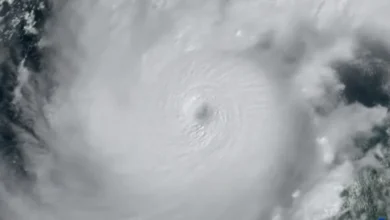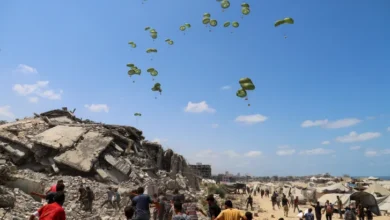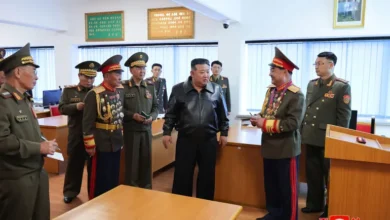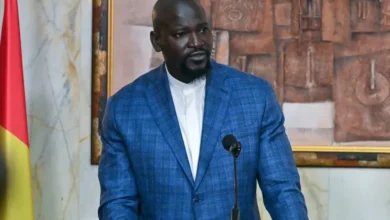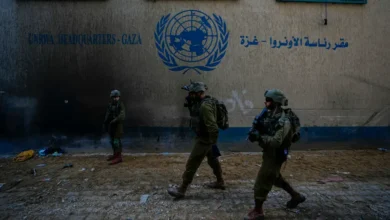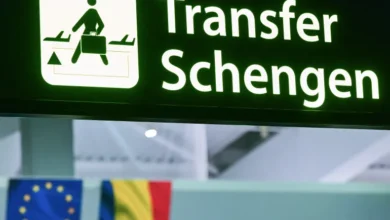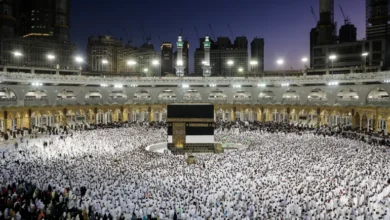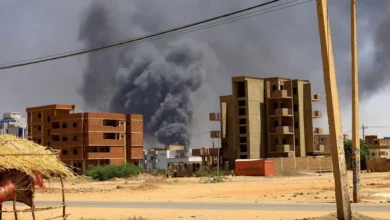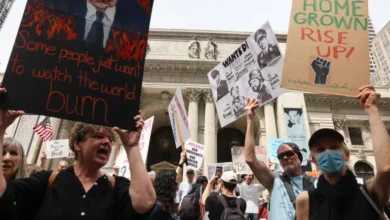Will Gaza ceasefire efforts hold amid escalating Iran-Israel tensions?
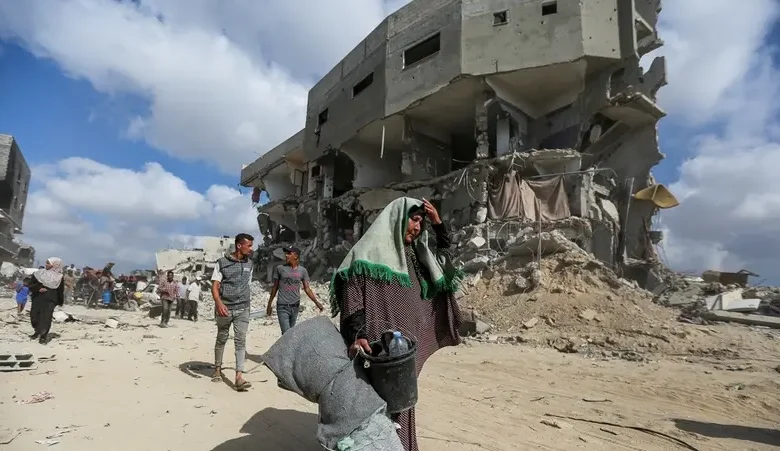
As the war between Israel and Hamas grinds on, efforts to secure a ceasefire face challenges, exacerbated by recent developments that could plunge the region into a wider conflict.
The situation has become more tense following the assassination of Hamas political leader Ismail Haniyeh and the looming threat of Iranian revenge. Haniyeh was killed late last month during a visit to Tehran, an act Iran has attributed to Israel. The Israeli government has neither confirmed nor denied its involvement.
Iran has vowed to avenge Haniyeh’s death, which occurred just hours after an Israeli strike in Beirut killed Fuad Shukr, a senior commander of Hezbollah, the Iran-backed militant group in Lebanon.

As the risk of a broader Middle East war looms large, international mediators are working tirelessly to broker a ceasefire in Gaza.
Last week, the US, Egypt and Qatar urged Israel and Hamas to meet for talks on August 15 in either Cairo or Doha to finalize a Gaza ceasefire and hostage-release deal. Israel has agreed to the invitation. Hamas has asked mediators to move forward with a ceasefire plan previously proposed by US President Joe Biden rather than holding additional discussions.
In line with the efforts led by the three mediating countries, the leaders of France, Germany and Britain called on Monday for a ceasefire in Gaza, the release of hostages held by Hamas and the “unfettered” delivery of aid.
Israel and Hamas have held several rounds of talks in recent months without agreeing on a final ceasefire. Analysts believe the hesitance from Hamas to participate in the negotiations this time may stem from deeper strategic calculations.
“First, the talks involve Yahya Sinwar, who has long cultivated an image of uncompromising resolve. While he is indeed resolute, Sinwar is also pragmatic and may seek a thorough understanding of the terms,” Arman Mahmoudian, research fellow at the Global and National Security Institute and lecturer at the University of South Florida, told Al Arabiya English.
“However, the more significant reason may be that Hamas is awaiting Iran’s response against Israel, possibly hoping that a broader conflict involving Hezbollah would shift Israel’s focus and grant Hamas greater leverage in negotiations.”
Hamas chose Sinwar, its top official in Gaza, as the new leader of its political bureau following Haniyeh’s assassination.
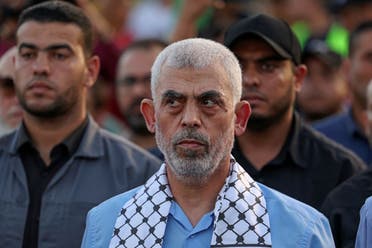
The Gaza war erupted after Hamas launched a surprise attack on southern Israel on October 7, resulting in 1,198 deaths, mostly civilians, according to Israeli official figures.
The militants also captured 251 people, with 111 still held captive in Gaza, including 39 believed to be dead, according to the military.
Israel retaliated by launching a military assault on Gaza that health authorities say has killed at least 39,965 people, though it does not specify the number of civilian versus militant casualties.
Negotiation dynamics
US Secretary of State Antony Blinken has postponed his trip to the Middle East, delaying his planned Tuesday departure, according to Axios. The trip was reportedly delayed due to “uncertainty about the situation.”
This delay is seen by some as an indication that back-channel diplomacy has yet to fully mature, suggesting that more time is needed, with the prospects for a ceasefire becoming increasingly uncertain.
As Israelis anticipate reprisals from Iran and Hezbollah in what has been described as a “war of nerves,” adding further instability to the Gaza ceasefire, it remains unclear whether Israeli Prime Minister Benjamin Netanyahu will commit to the current proposal. His decision hinges on balancing Biden’s vision and the preferences of the Israeli public with the demands of his far-right coalition, which remains staunchly opposed to any concessions with Hamas.
“Netanyahu has repeatedly stalled negotiations, undermining efforts and embarrassing facilitators, including the US. His own top intelligence, defense and security officials have voiced concerns over his tactics and end goals,” Ali Bakir, assistant professor at Qatar University and nonresident senior fellow at the Atlantic Council, told Al Arabiya English.
“The Israeli prime minister has a history of calling for negotiations only to divert and delay them. In the current situation, he seems impervious to anything short of serious US pressure or an internal challenge. The lack of strong pressure from regional and international actors, coupled with unwavering support from ultra-radicals in his government, allows him to dismiss any efforts to end the war on Palestinians.”
Netanyahu has publicly denied blocking a Gaza ceasefire deal, blaming Hamas for stalled negotiations. However, behind the scenes, Netanyahu has added new conditions to Israel’s demands, which his own negotiators fear are creating additional obstacles.
Documents reviewed by The New York Times revealed that these conditions were introduced in late July, complicating the process. While Hamas has also been reluctant to compromise on key issues, the extensive maneuvering by Netanyahu’s government suggests that reaching an agreement in the upcoming negotiations may be elusive.
Escalation risks
Western diplomats have been calling on Iran to de-escalate the situation. The Islamic Republic, however, rejected Western calls to stand down its threat of reprisals.
Three Iranian officials said later that only a ceasefire deal in Gaza stemming from hoped-for talks this week would hold Iran back from directly attacking Israel on its soil.
Netanyahu’s government has insisted that it does not seek to escalate the conflict beyond Gaza. Yet, analysts argue that if Iran retaliates with an intense strike, it could inadvertently align with Netanyahu’s strategy, providing him with a pretext to justify a broader conflict.
“Netanyahu’s primary aim seems to be to prolong the Gaza war and expand it regionally, a goal evident from the onset of the campaign,” said Bakir. “While Haniyeh’s death is less significant to Iran than Suleimani’s was, Iran faces a dilemma: not retaliating could invite further Israeli attacks, yet a strong response might serve Netanyahu’s plan for a regional conflict that could ensnare the US and potentially devastate Iran.”
“Lacking the capacity for a direct large-scale war, Iran is likely to opt for a face-saving response. However, behind-the-scenes discussions may be happening, with Iran possibly seeking US concessions on other issues rather than engaging in open conflict.”
Over the weekend, the US and Israel ramped up preparations for potential escalation.
US Defense Secretary Lloyd Austin ordered a guided missile submarine, the USS Georgia, to the Middle East, accelerated the arrival of the aircraft carrier USS Abraham Lincoln and released $3.5 billion for Israel to purchase American weapons and military equipment.
This follows the earlier deployment of the USS Theodore Roosevelt along with roughly a dozen other warships and fighter aircraft. The Pentagon’s naval and air buildup, the largest since October 7, aims to deter Iran and its militias.
International and regional pressures
Can the US and Arab states exert enough pressure to forge a Gaza deal? It is unclear how much the US’ Arab allies can do to contain the expected counterstrike and, moving forward, whether Washington can convince the government of Netanyahu from further fueling the flames.
“America, as a close ally of Israel, has limited capacity to pressure the Palestinians. While the US might have some leverage over Israel, Biden is unlikely to risk domestic political fallout by pushing Israel too hard, especially with upcoming elections,” said Mahmoudian.
“Among Arab states, Egypt and Qatar wield more influence over Hamas – Qatar as the host and primary humanitarian sponsor, and Egypt through its control of the Gaza land corridor. Also, both Saudi Arabia and the UAE hold some sway over Israel.”
